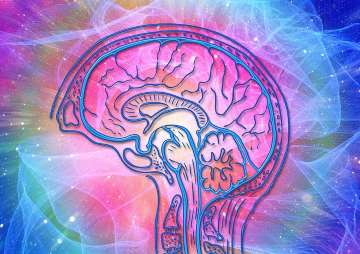Trauma and Trauma Therapy
Psychotherapy for severe stress
On the terms trauma and trauma therapy
Trauma therapy is, above all, the treatment of the adverse consequences of stressful experiences. These effects of traumatic experiences can include both physical and psychological symptoms. Trauma therapy is also a process that values, appreciates and utilises a client’s resources and values expressed in the trauma.
The term trauma refers to a very stressful psychological experience or a physical injury. A single bad experience, such as an accident, experiences of violence or abuse can be traumatic. Furthermore, a series of experiences or an ongoing stress can have traumatic effects. Traumatic experiences may have happened recently or back in time, such as in early childhood. What matters is that these experiences have led to extreme stress, fear, helplessness or even horror. Hence, not only trauma caused by a single event but also a series of events or an ongoing stress can have traumatic effects.
Making sense of the trauma response
Our brain is a complex system that we are in the process of understanding better. The following introductions are not intended to do justice to this complexity, but rather provide an initial orientation on the subject matter of trauma.
How our brain helps us to live through extremely stressful experiences
1.Our brain does more than we think
Whilst we work, go for a walk or read the newspaper, countless physical processes such as breathing, heartbeat, digestion and body temperature are taking place unconsciously. These processes, which are essential for survival, are regulated autonomously by the brain and do not require our awareness.
2. Conscious thought and action require emotional stability
3. In extreme situations, unconscious brain processes take control
4. Our brain learns from traumatic experiences
Once we feel safe again, traumatic experience can be processed consciously. We may remember little by little what happened, we can think about it, talk to others, express our feelings. In this way, we can process even difficult experiences and be considerate of these learnings in our future life. Much of the traumata we have ever experienced have been processed by our brain in this way.
5. When trauma-processing fails
Trauma processing can be difficult for a number of causes:
-
-
Sometimes traumatic experiences have a lasting effect on our sense of safety. We then experience a level of anxiety or fear that hinders the processing of the trauma.
-
Even if we feel safe, the memories of what has been experienced can be very stressful. These feelings can be difficult to bear and in turn can lead to deliberate avoidance of dealing with the traumatic experience. There can also be unconscious repression of memories.
-
Adverse consequences of the difficult experience can be of influence to our capacity to think and hence also of processing the trauma.
-
Finally, it is possible that a part of the memories related to the trauma cannot be recalled consciously or that such memories were not even fully formed in moments of highest stress.
-

Coping with trauma and stress
1. Creating safety
Create safety and security counteracts the traumatising experience of stress, fear, helplessness or horror. The more secure we feel, the sooner we can deal with traumatic experiences. Safety can be achieved in different ways, for instance through
-
- temporal or spatial distance from any threats
- the proximity of friends
- opportunities to speak in a safe or confidential context
- moving to a safe and secure place
- warm and soothing support
- self-care and relaxation
- performing favourite and routine activities
- enough sleep and healthy nutrition.
2. Noticing post-traumatic symptoms
A number of psychological and physical symptoms can occur subsequent to trauma. These include, for example
-
-
Avoidance of activities and situations that could evoke memories of the trauma
-
Feelings of numbness, emotional dullness and indifference towards other people, apathy or joylessness
-
Re-experiencing of the trauma in intrusive memories (flashbacks), sleep disorders, nightmares
-
Agitation and frightfulness
-
Reduced capacity to think or to remember
-
Physical symptoms such as pain, indigestion, illnesses
-
Depression, anxieties and panic attacks.
-
3. Seeking and accepting help
4. Treating trauma in a safe context
You can find more information on post-traumatic stress here Health Portal Austria (in German) or here National Health Service – NHS (in English).
Trauma therapy in our practice in Vienna
In our psychotherapeutic practice, we help clients to overcome difficult experiences in a safe and confidential setting. We treat traumatic experiences in adults, children, adolescents and couples, who can also be affected by traumatic experiences.
We work with systemic methods of processing trauma. To support the processing and integration of traumatic experiences, we also utilise trauma therapeutic methods EMDR (Eye Movement Desensitization Reprocessing) and Brainspotting.
We are happy to respond to questions and requests for further information on trauma treatment and treatment methods. We welcome your call and would be delighted to be of help.
